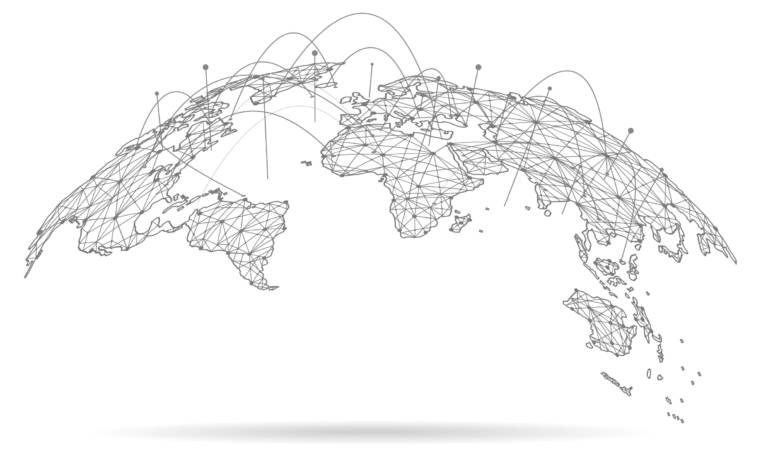Checking Out the Historical Background of Letters Rogatory in Legal Frameworks
Checking Out the Historical Background of Letters Rogatory in Legal Frameworks
Blog Article
The Role of Letters Rogatory in International Law: Trick Insights
Letters rogatory offer as a crucial tool in global regulation, promoting cross-border legal assistance by enabling territories to formally request proof and actions from one an additional. What effects might these challenges have for future legal procedures?
Definition of Letters Rogatory
In the world of international law, letters rogatory act as official requests released by a court in one jurisdiction to look for assistance from a court in an additional territory. Letters rogatory. These demands are particularly substantial in cross-border legal procedures, where the enforcement of a court's order or the event of evidence might be restrained as a result of jurisdictional limitations

The procedure normally needs the asking for court to express the particular information or activity needed from the foreign court, sticking to the legal methods and conventions established between the territories involved. As soon as issued, the letters rogatory are transferred through polite channels, which might include embassies or consular offices, to ensure that the demand is recognized and acted on by the international court. Overall, letters rogatory exhibit the cooperative structure important for effective global legal procedures.
Historical Context
Although the technique of letters rogatory has ancient origins, its formalization within the framework of global law arised significantly in the 20th century. Historically, such ask for judicial assistance were used in various legal practices, including Roman legislation, where they facilitated cross-border teamwork in lawful matters. The idea obtained renewed interest with the surge of globalization and the enhancing intricacy of global legal interactions.
The mid-20th century saw the facility of treaties and conventions that looked for to standardize the process of letters rogatory. Especially, the 1970 Hague Convention on the Taking of Proof Abroad in Civil or Industrial Issues provided a structured technique, boosting the efficacy of these requests - Letters rogatory. This period marked a change from casual setups to a more methodical structure, which resolved the obstacles posed by differing national lawful systems
As states came to be extra interdependent, the need for effective systems to gather evidence across borders emerged, enhancing the duty of letters rogatory in helping with worldwide teamwork. Today, they stay a critical instrument for obtaining proof and ensuring that justice goes beyond nationwide borders, mirroring the advancing nature of global regulation in action to international difficulties.
Refine of Issuing Demands
The procedure of providing letters rogatory normally entails numerous important actions created to make sure that ask for judicial support are clear, particular, and compliant with both global and domestic legal standards. Originally, an event seeking support must prepare an official demand that details the essential truths of the case, the alleviation looked for, and the particular evidence or testament needed. This document has to be crafted with accuracy to meet the legal demands of the jurisdiction in which it will certainly be sent.
Following the prep work of the request, it is sent to the suitable authority, frequently a court or a marked governmental company. This authority reviews the demand to guarantee it sticks to lawful requirements and procedural norms. As soon as authorized, the demand is transmitted to the international jurisdiction with polite channels.
Upon invoice, the foreign court examines the demand's compliance with its neighborhood laws and methods (Letters rogatory). If approved, it proceeds to carry out the demand, which may include the issuance of subpoenas or the collection of proof. Throughout this process, preserving clear interaction between the requesting and obtaining jurisdictions is vital to ensure successful participation and the fulfillment of the request
Difficulties and Limitations
Restrictions and obstacles regularly occur in the process of implementing letters rogatory, often coming from varying lawful systems and treatments in between jurisdictions. One significant challenge is the varying requirements of admissibility for proof, which can bring about complications in the acceptance of documentation requested with letters rogatory. Furthermore, the absence of harmony in lawful terms and interpretations can develop misconceptions, making complex interaction in between courts in various nations.
In addition, hold-ups prevail due to bureaucratic processes, as the request might require to go through numerous layers of lawful authorities prior to it is met. In some circumstances, the asked for jurisdiction may lack the necessary resources or willingness to cooperate, further hindering the procedure. Language obstacles also add to obstacles, as exact translation of lawful papers is important for making sure that the designated message is conveyed without distortion.
Lastly, sovereignty concerns may occur, as some states are reluctant to comply with demands that they view as infringing upon their legal autonomy. These obstacles highlight the intricacies fundamental in making use of letters rogatory, demanding better harmonization and teamwork among international legal systems to improve their efficiency.

Impact on International Collaboration
Identifying the value of letters rogatory in fostering international collaboration is critical, as these demands facilitate cross-border legal support and promote collective efforts in civil and criminal issues. By making it possible for one territory to officially ask for aid from an additional, letters rogatory develop an organized lawful structure that boosts the performance of global from this source interaction in between judicial authorities.
Making use of letters rogatory assists to develop shared depend on and respect among nations, which is important in an increasingly interconnected world. They serve as a mechanism not just for collecting proof however likewise for guaranteeing that legal procedures are promoted throughout boundaries. This is especially essential in combating transnational crime, where the lack of ability to reference safeguard teamwork can weaken justice.
Furthermore, the reliance on letters rogatory can simplify complicated legal proceedings, lowering hold-ups and uncertainties in international examinations. The step-by-step safeguards fundamental in this process add to the security of individual civil liberties while assisting in collaboration among states. Inevitably, the effect of letters rogatory on international teamwork highlights their duty as crucial tools in the promo of justice, promoting a joint spirit that goes beyond national limits and legal systems.
Conclusion
In verdict, letters rogatory work as an essential instrument in global legislation, facilitating cross-border legal aid and teamwork. Despite intrinsic challenges such as differing administrative hold-ups and legal requirements, their standardized procedures advertise trust amongst countries. The continued development of these devices is vital for boosting the effectiveness of worldwide lawful procedures, ultimately promoting more powerful collaboration in both civil and criminal issues throughout jurisdictions. The significance of clear interaction in this context can not be overemphasized.
Letters rogatory offer as a crucial tool in international legislation, assisting in cross-border legal aid by enabling territories to officially ask for evidence and actions from one another.The process typically needs the requesting court to verbalize the particular information or action needed from the foreign court, sticking to the lawful methods and conventions developed in useful link between the jurisdictions involved. Historically, such requests for judicial assistance were utilized in numerous lawful customs, including Roman legislation, where they helped with cross-border collaboration in legal issues.The procedure of providing letters rogatory usually includes several critical actions made to make sure that requests for judicial assistance are clear, specific, and certified with both residential and international legal standards.In addition, hold-ups are common due to bureaucratic procedures, as the request might require to pass through numerous layers of lawful authorities before it is met.
Report this page